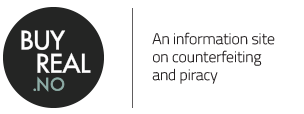Copyright
The main rule is that the individual copyright holder has the sole right to decide how their intellectual work is made available to others.The copyright owner has sole right to produce copies of their work and make it accessible to the general public. Therefore, as a main rule, copying and making content accessible, requires permission from the copyright owner. This sole right rule applies regardless of the method used for copying or making works accessible to others. This also covers use of content by way of digital technology.
Limits to copyright holder rights
However, due regard to the rights of copyright holders must be weighed against other issues and interests. For this reason, the Norwegian Copyright Act contains certain rules that limit the rights of the copyright holder. These can have various purposes, but in the main are based on social and consumer interests with regard to accessing intellectual works.
Copying for private use
One example of this is the right to copy content for private use, which represents a clear limiting of a copyright holder's sole right. Rights to such copying are naturally based on the principle that copyright regulation should not affect actions that take place in the private sphere. The right to carry out such copying, however, becomes null and void if the source of the copied content is illegal – for example when access is made possible via file sharing without the express permission of the copyright holder.
Normal reading of internet pages is also allowed without affecting the copyright holder's sole right.
The purpose behind copyright laws
The protection that copyright laws provide is there to ensure, amongst other things, that creators and practising artists can receive an income for their creative work, and also that those who invest in content of this type gain a return on their investment. One of the underlying motives for copyright laws is that they will help stimulate creativity and the production of new cultural output in our society. Legal copyright protection is not just there for individual copyright holders, but also to ensure that creative activities are of benefit to society as a whole.
Legal consequences
You can be fined, or even receive a prison sentence, for breaching the Norwegian Copyright Act. You may also be held liable for compensation claims. The same applies if you assist in a breach of the law. The courts are also at liberty to forbid any further actions that imply a continuation of copyright breaches (an injunction).
With regard to copyright infringements on the internet, the courts can rule that a copyright holder who can prove a breach of his or her copyright from a specific IP address, be furnished with the identity of the subscription account being used for that infringement. This makes it possible for copyright holders to enforce the terms of their copyright on the internet just like everywhere else.







